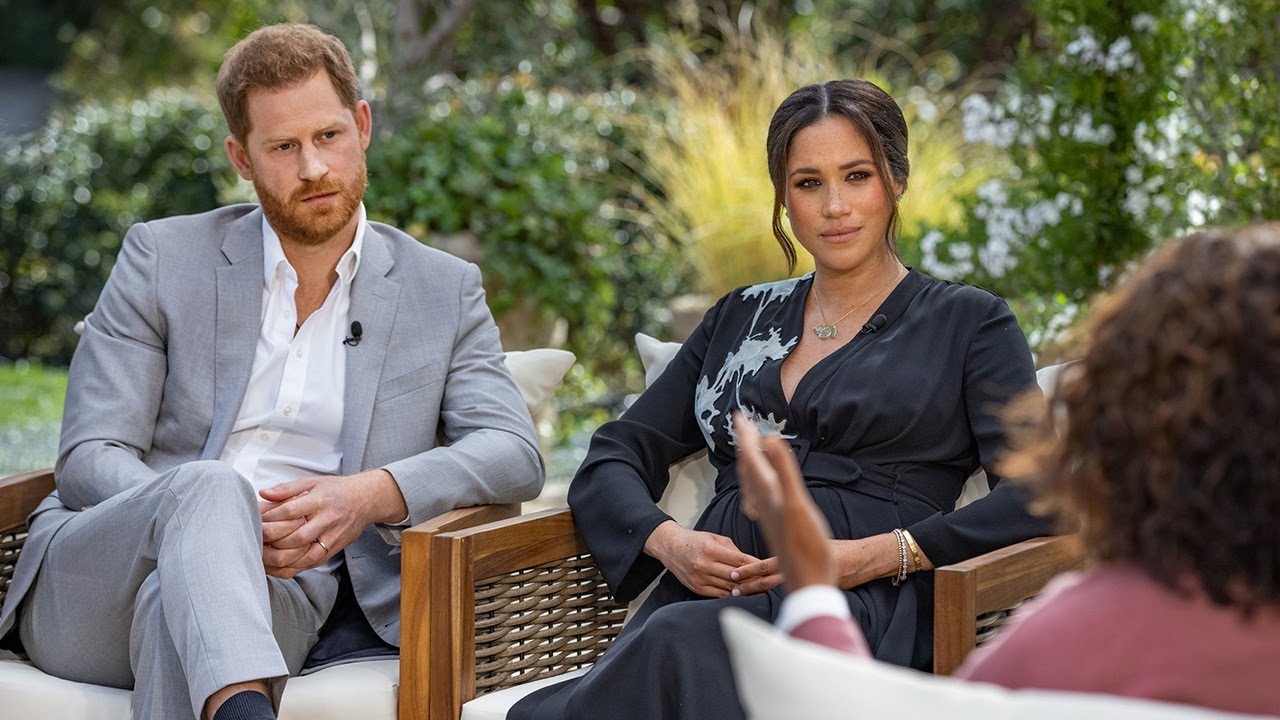Must Read
Harry and Meghan: The Fallout of Royal Discontent
In the wake of a failed lawsuit, the spotlight shines brightly on Prince Harry and Meghan Markle, raising questions about their choices and the narratives they have spun.
A royal expert has weighed in, suggesting that the couple's ongoing unpopularity is rooted in Harry's memoir, which many believe misrepresents the monarchy.
Instead of presenting a balanced view, the book appears to cast the royal family as antagonists while positioning Harry and Meghan as the protagonists in a drama that has left many feeling uneasy.
The decision to step back from royal duties was driven by a desire for a different life, particularly for Meghan.
The couple's move to the United States was fueled by the hope that their royal titles would grant them access to new opportunities.
However, they soon discovered that being a Duke and Duchess doesn't carry the same weight across the Atlantic.
Their attempts to reshape their identities have not resonated well with many in the UK, especially after allegations surfaced regarding Meghan's treatment within the royal fold.
Contrary to their claims of mistreatment, insiders argue that Meghan's experiences mirror those of her sister-in-law, Catherine, the Duchess of Cambridge.
While Catherine adapted seamlessly to her royal role, Meghan seemed to struggle with the hierarchy, believing her background as a successful actress entitled her to special consideration.
This clash of expectations has only deepened the divide between the couple and the institution they once called home.
Critics point out that Harry's grievances, as detailed in his book, often come off as trivial.
Complaints about mundane issues like breakfast arrangements or room sizes in a castle seem more fitting for a child than a grown man.
This tendency to dwell on the petty has led some to question Harry's maturity and whether he is capable of taking responsibility for his actions.
Moreover, the narrative surrounding Harry's past is increasingly complicated by contradictions.
He has publicly retracted several statements about his life, including details about his drug use and personal relationships, raising eyebrows about his credibility.
The public's perception of him is further clouded by comments about his brother William's appearance, which many found unnecessary and hypocritical given Harry's own lack of grooming.
The tragedy of losing a parent at a young age is a shared experience between Harry and William, yet Harry often presents himself as the sole victim.
While sympathy for his loss is understandable, it cannot excuse a lack of accountability for his behavior.
As a member of the royal family, Harry must grasp that he cannot dictate how the media operates or demand transparency from them without facing potential repercussions.
Royalty, despite its historical power, derives much of its influence from charitable endeavors rather than personal aggrandizement.
Harry's attempts to assert his significance in the U.S. market appear misguided, leading many to question the motivations behind his decisions.
Instead of seeking therapy to address his grievances, he opted for a public airing of family secrets—an approach that many deem distasteful.
The fallout from Harry's revelations extends beyond mere public opinion.
Reports suggest that he has faced serious allegations of misconduct, including accusations of violence towards individuals during casual encounters.
These claims have reportedly led to significant financial settlements for the royal family, indicating a troubling pattern of behavior that could have lasting consequences for Harry.
His military career, once a source of pride, is now marred by allegations of misconduct and dishonorable discharge.
With accusations ranging from substance abuse to animal cruelty, the romanticized image of a soldier has been tarnished.
Harry's self-portrayal as a brave warrior contrasts sharply with reports of his time spent gaming in a bunker, earning him the derisive nickname “Bunker Harry.”
As Harry and Meghan navigate their post-royal lives, they seem to be grappling with the reality of their choices.
The couple's lavish lifestyle, funded by questionable means, raises concerns about their financial sustainability.
With a growing disinterest from the public, their strategy of leveraging royal connections appears increasingly ineffective.
Many observers believe that Harry and Meghan's relationship with the royal family is irreparably damaged.
Their public disdain for the institution they once represented makes a return unlikely, and speculation about King Charles extending a helping hand seems far-fetched.
Ultimately, the couple must reckon with the consequences of their actions and the narratives they have constructed.
The future looks uncertain for the Duke and Duchess of Sussex.
Without a clear path forward, they risk becoming irrelevant figures in the public eye.
As they continue to grapple with their identities outside the monarchy, one can only hope they find a way to navigate their challenges without further alienating themselves from the very institution that shaped their lives.




















